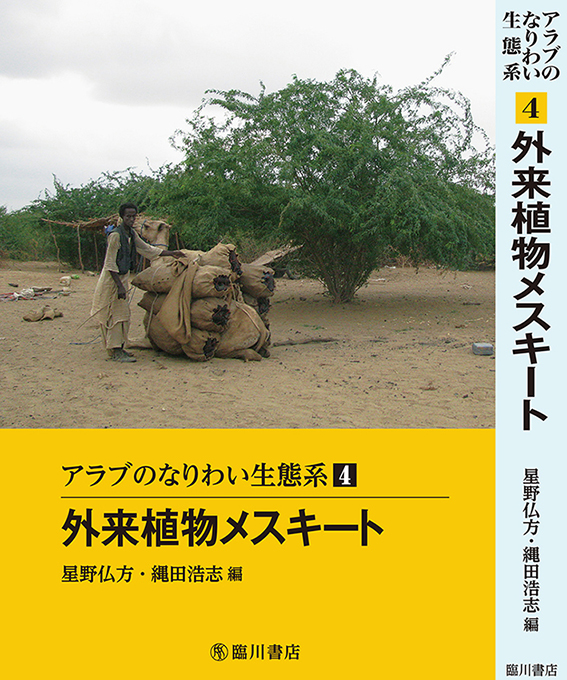Arab Subsistence Ecosystem Series Vol. 4
『The Alien Species Mesquite』
Edited by Buho Hoshino, Hiroshi Nawata
RINSEN BOOK CO., Kyoto, 270 pp.
December, 2013(in Japanese)
Mesquite (Prosopis juliflora) was considered an ideal anti-desertification
tree in West Asia and Africa due to its high capacity to stabilize sand dunes,
survive in inhospitable environments, and provide fuel, timber, fodder, and
edible pods. Once planted, however, the mesquite seedlings failed to take
root on sand dunes, but rather became well established in oases, where
they contributed to the lowering of the water table and suppression of
native vegetation. The invasion of mesquite not only changed the regional
ecosystem, but has also caused livelihood degradation of local communities.
The authors seek to learn from the unintended consequences of the joint
action of scientists, administrators, and NGO workers, to go beyond criticism,
and to continue doing high quality and appropriate scientific research.
Scientists from universities, research institutions, NGO members, consulting
firms, developmental organizations, and local people must work together,
pooling their best knowledge to build an effective mesquite management plan.
